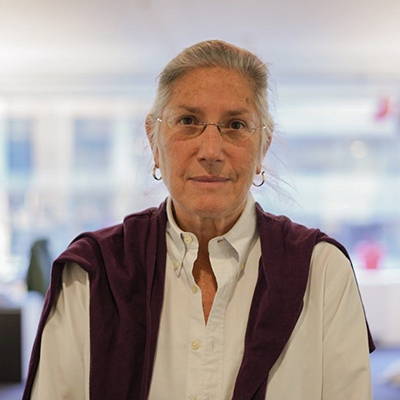Panelists:

Sue Biniaz
Sue Biniaz joined the Biden-Harris Administration on day 1 as the Deputy Special Envoy for Climate Change at the U.S. Department of State. Previously she was a senior fellow at the Yale Jackson Institute for Global Affairs and a Senior fellow for climate change at the UN Foundation. For more than 25 years prior, Biniaz served as the lead climate lawyer for the U.S. State Department. In that capacity, she played a central role in all major international climate negotiations, including the Paris Agreement on climate change. During her tenure at the State Department, as a deputy legal adviser, she also supervised the Treaty Office and issues related to the law of the sea, Somali piracy, the Western Hemisphere, human rights, law enforcement, and private international law. Prior to that, she led the State Department’s legal office for oceans, environment, and science, as well as the legal office for European affairs. She clerked for Judge Dorothy W. Nelson on the 9th U.S. Circuit Court of Appeals, attended Yale College, and earned her J.D. from Columbia Law School.
 Denise Mauzerall
Denise Mauzerall
Dr. Denise Mauzerall is Professor of Environmental Engineering and International Affairs at Princeton University holding a joint appointment between the Princeton School of Public and International Affairs and the Department of Civil and Environmental Engineering. Her research examines linkages between air pollution origin, transport and impacts, including impacts on human health, food security and climate change. Current research is examining the potential air quality and climate benefits of increased penetration of renewable energy and natural gas in China, evaluating methane leakage from abandoned oil and gas wells, and examining the impact of climate change on global air quality. She teaches courses at the undergraduate, masters and doctoral levels on ‘Global Environmental Issues’, ‘Climate Change, Science and Policy’, and various aspects of sustainability.
Prior to Princeton Dr. Mauzerall was a post-doc at the National Center for Atmospheric Research, a program manager in the Global Change Division of the U.S. EPA where she implemented the Montreal Protocol, and an environmental consultant. She has lectured widely around the world at universities, conferences, and for government and non-governmental agencies. She has authored over 100 peer reviewed papers and been a contributing author to the Intergovernmental Panel on Climate Change (IPCC) which received the Nobel Peace Prize. She is currently a member of the chartered US EPA Science Advisory Board and on the editorial board of the journal Atmospheric Environment. She is a member of several science advisory boards including the Institute for Sustainability Studies in Potsdam Germany. She spoke at the World Economic Forum in Davos, Switzerland in January 2017 on opportunities to address air pollution and greenhouse gas mitigation simultaneously in China via increased electrification of the economy with renewable energy. She directs the doctoral program at the Princeton School of Public and International Affairs. Dr. Mauzerall received a Sc.B. in chemistry from Brown University, a M.S. in Environmental Engineering from Stanford University and a Ph.D. in atmospheric chemistry from the Earth and Planetary Science department at Harvard University.

